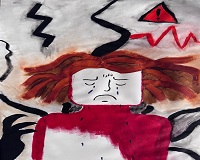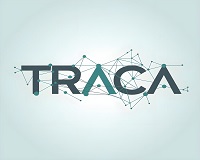DECHADOS DIGITAL is a type B oriented research project. The study is directly related to thematic priority 2, Culture, Creativity, and Inclusive Society, of the State Plan for Scientific, Technical, and Innovation Research 2024-2027. It focuses on identifying heritage in digital spaces and how this fosters the development of creativity. The proposal is a continuation of the project “Dechados. Inclusive Creativity in Secondary Education through the Relationship between Educational Centers and Museums” (PID2021-123007OB-I00), which analyzed in-person activities through qualitative analysis based on triangulated observation with secondary school teachers and museum educators, identifying the creativity strategies of 17 museums. We propose to analyze the digital resources and educational activities used by museums, incorporating digital environments, thus expanding the research into the digital context. It is also related to the strategic line of Demographic Challenge and Social Cohesion in the areas of intervention of Gender Equality and Diversity, Dependency and Accessibility, and Education. It fulfills the objectives set out in Science Law 17/2 regarding gender mainstreaming for real and effective equality. The team consists of 9 female and 8 male researchers.
The ANDANA project focuses on investigating how artistic and cultural actions can become effective tools for channeling children's voices and fostering their social inclusion in crisis and emergency contexts. In a global context of growing inequalities and challenges such as climate change, armed conflict, and natural disasters, children, as a vulnerable group, face significant limitations in expressing their needs and actively participating in society. Emergency situations amplify these vulnerabilities, relegating children to a position of invisibility in decision-making. The arts offer a universal, symbolic, and accessible language that transcends traditional communication barriers, allowing them to express emotions, understand complex situations, and participate in democratic processes from an inclusive perspective.
The TRACA project analyzes changes in post-compulsory educational trajectories, focusing on complex pathways that do not follow conventional routes. The study investigates factors such as social origin, gender, and location that influence these changes, and how social inequalities impact educational decisions. The project is divided into two sub-projects: one analyzing changes in vocational training and online university education, and another analyzing changes in upper secondary education and university. TRACA is comprised of two teams from the University of Valencia and the Autonomous University of Barcelona, working in a coordinated manner.


 DECHADOS DIGITAL. Inclusive creativity in museums and heritage sites
DECHADOS DIGITAL. Inclusive creativity in museums and heritage sites
 ANDANA: Artistic emergencies for the participation and inclusion of children's expressions in crisis situations
ANDANA: Artistic emergencies for the participation and inclusion of children's expressions in crisis situations
 TRACA: Complex pathways in high school and university. Change as a strategy for adjusting expectations and outcomes
TRACA: Complex pathways in high school and university. Change as a strategy for adjusting expectations and outcomes





